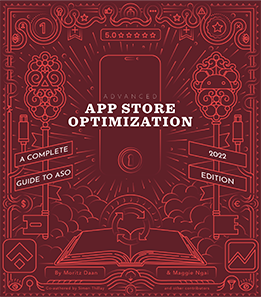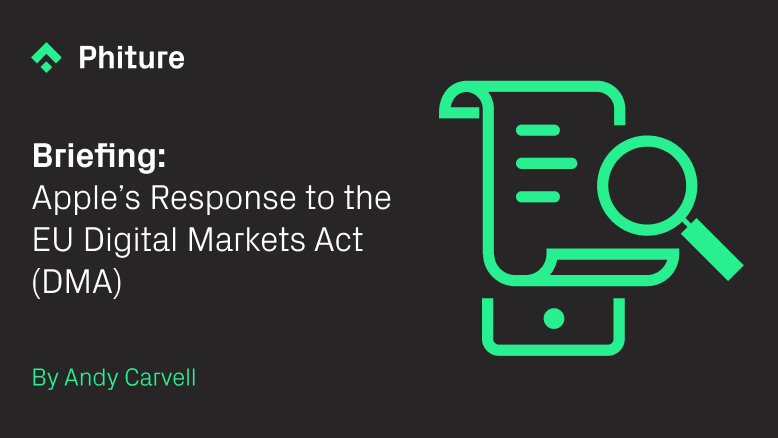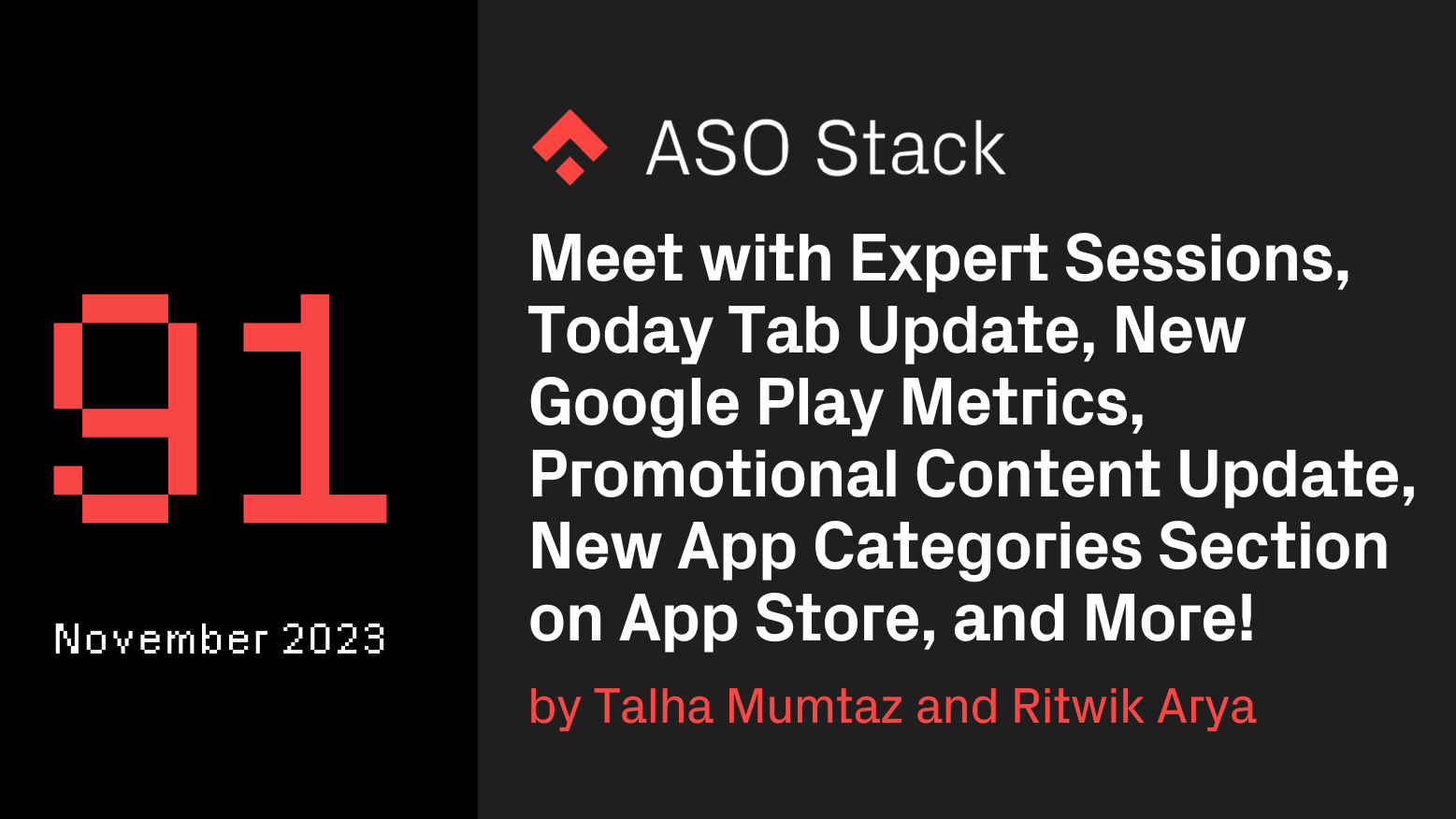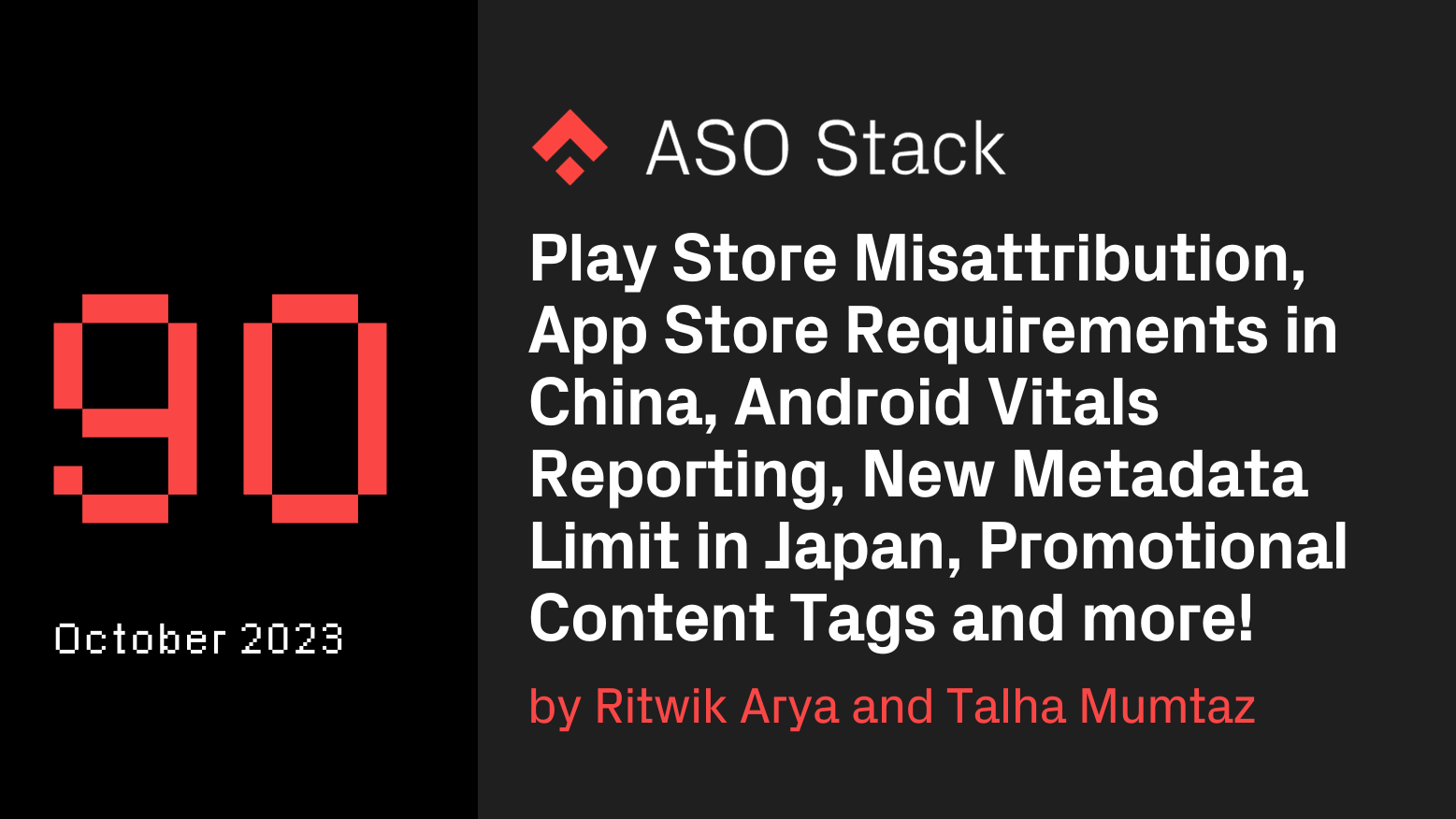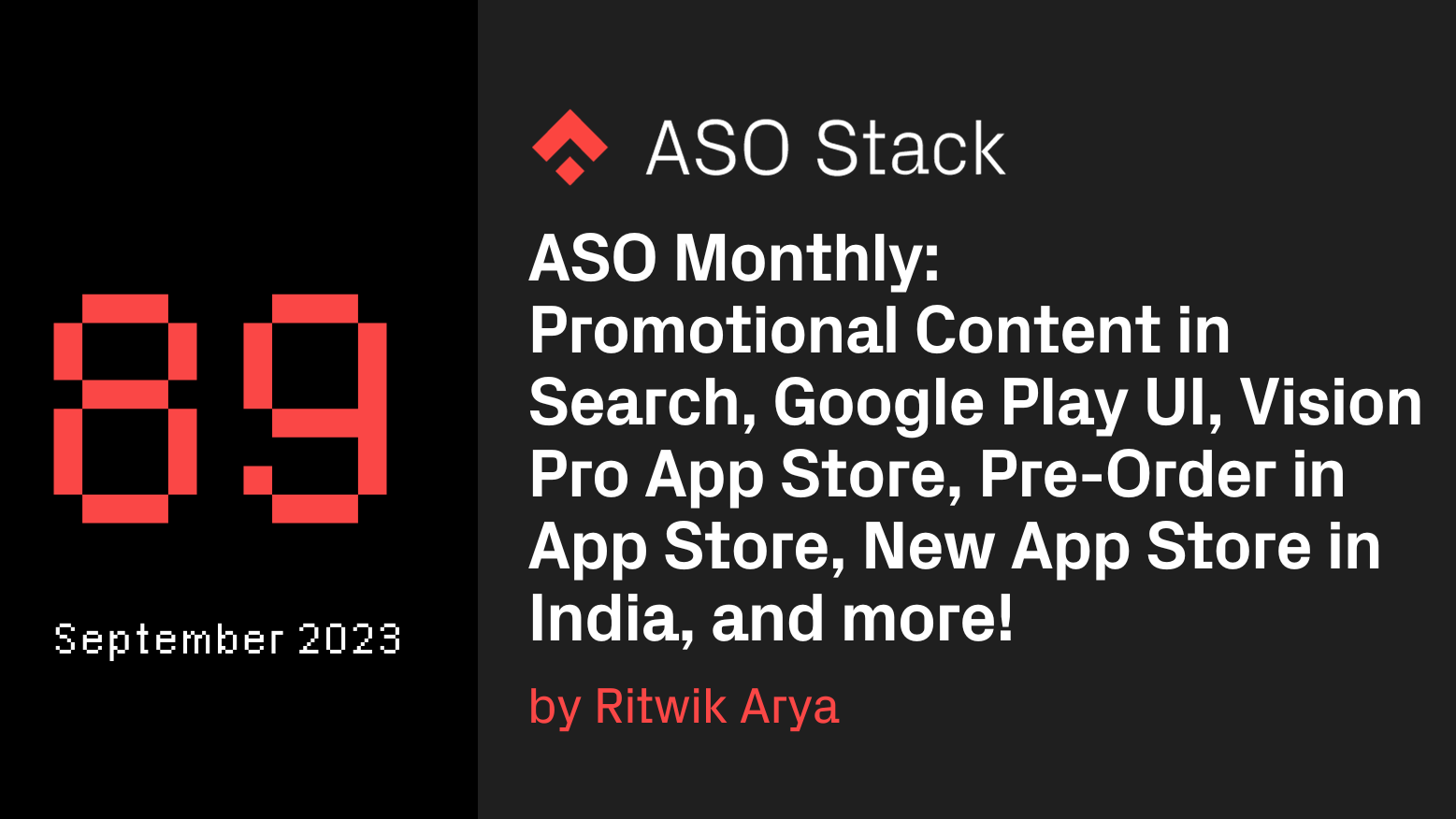How to increase target 200 characters or more in App Store Optimization
NB: Phiture is hiring for a key role to lead our evergrowing ASO team. You’ll be responsible for leading and overseeing the success of our App Store Optimization service team and help Phiture to lead the way in mobile growth. Read more about the role here

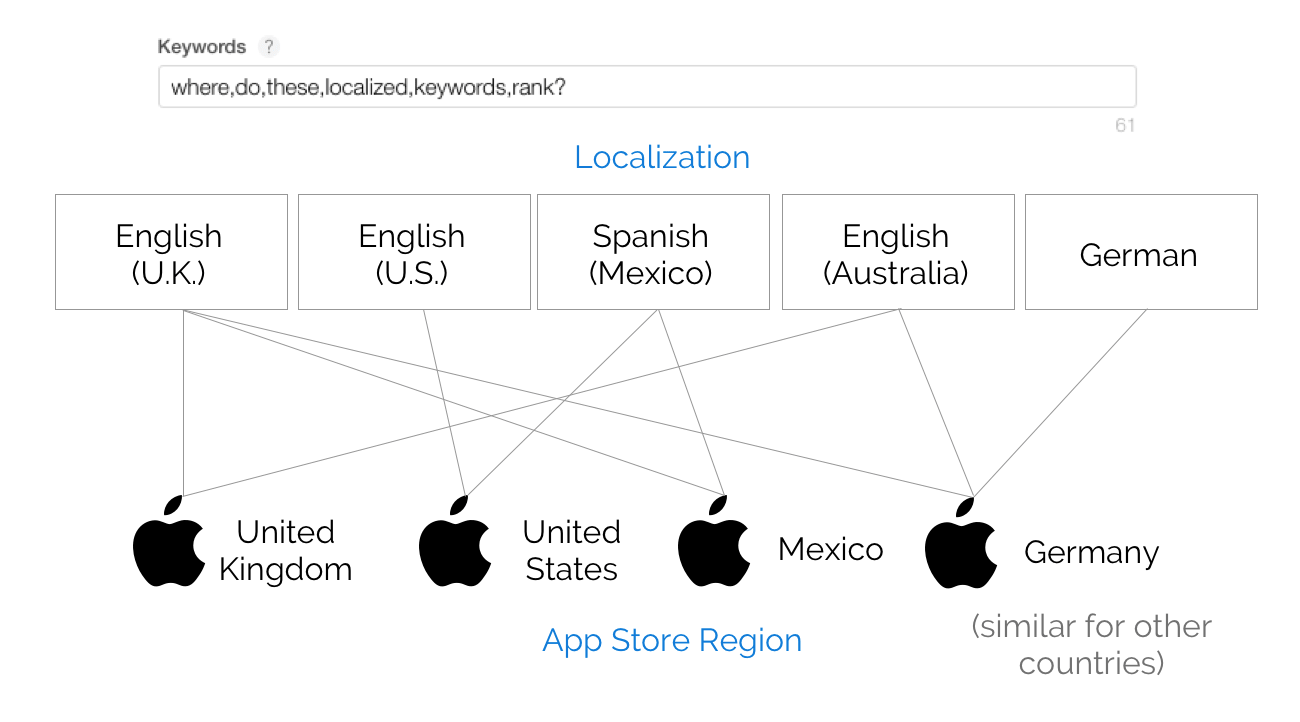
When it comes to App Store Optimization (ASO), the Apple App Store is mostly a black box. One of the most important assets to play with to increase discoverability is the 100-character keyword field. You can fit some 8–12 keywords in there, which can be a real challenge. This article shows you how localization can help you solve that issue partially.
We all know the basic tricks for the keyword field by now. Don’t add spaces, avoid plurals (although not always true), etc. But there is a much better trick that you can pull, and it has everything to do with localization. And you can use it, whether you’re planning on offering localization for your App or even your App Store description.
Many apps try to grow in the US first before rolling out in new markets, optimizing only their default (English) App Store presence. And that’s a fair thought since you’d think that you could only influence that market with “English (U.S.)” App Store keywords.
But is that the case? We wanted to know what the effect was on keyword indexation when adding other languages. What would the difference be between Spanish from Mexico and Spanish from Spain? How would someone in the US App Store with a Spanish iOS device language, find apps in the store? Etc.
We’ve tested it and here are the results per app store region (latest update: 30th October 2019):
United States: English (U.S.), Spanish (Mexico)
United Kingdom: English (U.K.)
Algeria: Arabic, French, English (U.K.)
Australia, New Zealand: English (Australia), English (U.K.)
Austria: German, English (U.K.)
Bahrain: Arabic, English (U.K.)
Belgium: English (U.K.), French, Dutch
Brazil: Portuguese (Brazil), English (U.K.)
Canada: English (Canada), French (Canada)
China: Chinese (Simplified), English (U.K.)
Croatia: Croatian, English (UK)
Cyprus: English (U.K.), Greek, Turkish
Czech Republic: Czech, English (UK)
Denmark: English (U.K.), Danish
Egypt: Arabic, French, English (U.K.)
Finland: English (U.K.), Finnish
France: French, English (U.K.)
Germany: German, English (U.K.)
Greece: Greek, English (U.K.)
Hong Kong: Chinese (Traditional), English (U.K.)
Hungary: Hungarian, English (UK)
India: Hindi, English (UK)
Indonesia: Indonesian, English (U.K.)
Israel: Hebrew, English (U.K.)
Italy: Italian, English (U.K.)
Japan: Japanese, English (United States)
Korea: Korean, English (U.K.)
Kuwait: Arabic, English (U.K.)
Lebanon: Arabic, French, English (U.K.)
Luxembourg: French, German, English (U.K.)
Macao: Chinese (Traditional), English (U.K.)
Malaysia: Malay, English (U.K.)
Mauritania: Arabic, English (U.K.)
Netherlands: Dutch, English (U.K.)
Norway: Norwegian, English (U.K.)
Oman: Arabic, English (U.K.)
Poland: Polish, English (UK)
Portugal: Portuguese (Portugal), English (U.K.)
Qatar: Arabic, English (U.K.)
Romania: Romanian, English (UK)
Russia: Russian, English (U.K.), Ukrainian
Saudi Arabia: Arabic, English (U.K.)
Singapore: Chinese (Simplified), English (U.K.)
Slovakia: Slovak, English (UK)
Spain: Spanish (Spain), English (U.K.), Catalan
Suriname: Dutch, English (U.K.)
Sweden: Swedish, English (U.K.)
Switzerland: German, French, Italian, English (U.K.)
Taiwan: Chinese (Traditional), English (U.K.)
Thailand: Thai, English (U.K.)
Tunisia: Arabic, French, English (U.K.)
Turkey: Turkish, French, English (U.K.)
Ukraine: Russian, English (U.K.), Ukrainian
United Arab Emirates: Arabic, English (U.K.)
Vietnam: Vietnamese, English (U.K.)
Yemen: Arabic, English (U.K.)
Spanish-speaking LATAM
Argentina, Bolivia, Belize, Chile, Colombia, Costa Rica, Dominican Republic, Ecuador, El Salvador, Mexico, Nicaragua, Panama, Paraguay, Peru, Uruguay, Venezuela:
Spanish (Mexico), English (U.K.)
Rest of World:
Albania, Angola, Anguilla, Antigua and Barbuda, Armenia, Azerbaijan, Bahamas, Barbados, Belarus, Benin, Bermuda, Bhutan, Botswana, Brunei Darussalam, Bulgaria, Burkina Faso, Cambodia, Cape Verde, Cayman Islands, Chad, Congo, Dominica, Estonia, Fiji, Gambia, Ghana, Grenada, Guinea-Bissau, Guyana, Iceland, Ireland, Jamaica, Jordan, Kazakhstan, Kenya, Jamaica, Kyrgyzstan, Laos, Latvia, Liberia, Lithuania, Macedonia, Madagascar, Malawi, Mali, Malta, Mauritius, Micronesia, Moldova, Mongolia, Montserrat, Mozambique, Namibia, Nepal, Niger, Nigeria, Pakistan, Palau, Papua New Guinea, Philippines, Papua New Guinea, Saint Lucia, São Tomé and Príncipe, Senegal, Seychelles, Sierra Leone, Slovakia, Slovenia, Solomon Islands, South Africa, Sri Lanka, St. Kitts and Nevis, St. Vincent and The Grenadines, Swaziland, Tajikistan, Tanzania, Trinidad and Tobago, Turkmenistan, Turks and Caicos, Uganda, Uzbekistan, Virgin Islands, Zimbabwe
Key take-aways
To summarize, from our research it appears that:
1.In the United States, you will rank for Spanish (Mexico) and English (United States)
- Keywords cannot be combined from different locales. Meaning that if you have “food” in your Spanish (MX) keywords and “delivery” in your English (U.S.) keywords, you won’t rank for “food delivery”
- If your app isn’t localized for the Spanish speaking LATAM market, use this to your benefit for storing extra keywords.
- In the rest of the world (except Canada, New Zealand and Japan), you rank for keywords next to the applicable localizations also for English (United Kingdom)
- Previously you would rank for English (Australia), but since December 2018 the App Store algorithm has changed and it doesn’t index English (Australia) anymore — UPDATE December 2019: per Vadim Lysenko from our ASO slack community, the Australian keywords have started to getting indexed again.
Finally, the above cheatsheet does not only apply to your keywords field, but also to your title and subtitle.



